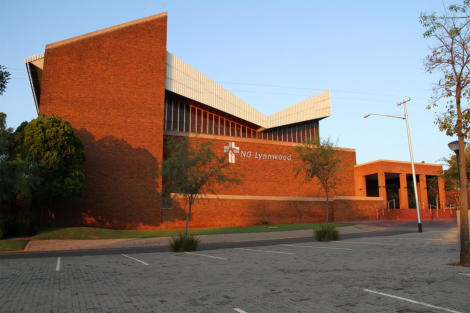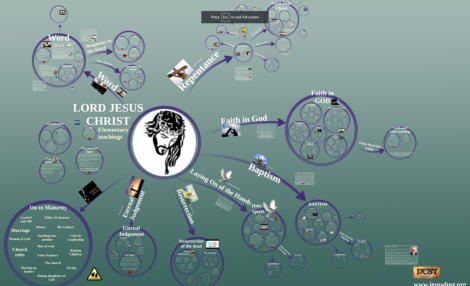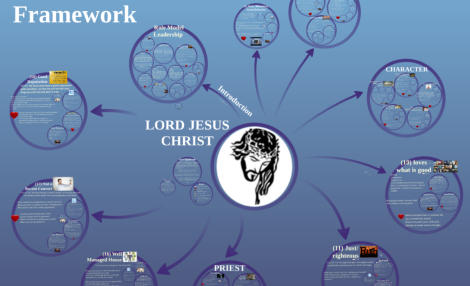
The Amazing Story of JesusDust
Going to church was always a very dull affair for me, even from an early age. Church for me was some religious guy with a microphone which all the older people adored, that ramble on all about God in some religious pies way. I expected that all God’s messengers would be as exciting as God Himself and as engaging as Jesus Christ. I was not drawn to learn from these men. Also, from the 1970s to the 80s, black people were not welcomed at our white South African Sunday services. Even for a sixteen-year-old, this was obvious hypocrisy. All this did not sit well with me, and eventually, I distanced myself from Christianity. I reasoned that one’s culture preconditioned us with a bias towards what I might have incorrectly regarded as the norm, so I became an agnostic. In 1982, at 17, I joined the South African police. I was posted in Johannesburg, Brixton, and lived at John Vorster Square living quarters. By the grace of God, I escaped being imprisoned for all the crimes I committed as a policeman, assault, torturing prisoners, corruption, theft, and other violent crimes. My early violent life later reminded me of the soldiers that flogged and crucified Jesus. This helped me transform my heart towards Jesus Christ with the accusation from Act 2:36 that is echoing in my life; “Act 2:36 “Therefore let all Israel be assured of this: God has made this Jesus, whom you crucified, both Lord and Christ.” In religious terms, I made a full circle from being worldly, then drawn to Judaism, Muslim, Hari Krishna (Hinduism), and back to Christianity when a friend finally explained the scriptures to me. At a time when I have done enough harm to myself and others, and when the purpose of my life troubled me, God reached out to me. I could not obtain a connection with the depth of the Gospel through boring men. Someone had to sit down with me to explain how the Gospel applied to me personally. By God’s grace, the penny dropped for me, and I became a disciple of Jesus Christ in 1992. I was twenty-six, one year married, and with our firstborn, Peter (I am fifty-seven today). This time my view of Christianity was formed on pure scriptures; and no longer our church traditions. Unfortunately, the newfound truth brought about a fair amount of conflict with many traditional Christian teachers. With my eyes opened for the first time, I was surprised how many Christians did not follow pure scripture but a watered-down and culturally adjusted doctrine. People seemed kind on the outside, but there is trouble once you ask a few difficult questions, which is culturally very rude. I became totally devoted to Jesus Christ and his mission. I was on a steep learning curve, growing in knowledge, faith, and wisdom. I learned how to make authentic disciples, counsel people, lead small groups, preach, etc. I was part of leadership in Pretoria that grew the church from a small room of twenty-eight disciples to a church of over a thousand members today. With this journey, I made many regretful mistakes, which now, by the grace of God, I consider experience. In 2011 my family and I immigrated to Perth, Australia, and joined a local church. We learned a lot about grace because, as South Africans, we tend to be very judgemental. However, we learned that Australians struggle to forge deep relationships. It was challenging to make friends outside South African circles, the Bible teachings were shallow, and the congregation did not practice discipleship. My family and many others in the congregation suffered due to a lack of teaching. This is where JesusDust was started. I agreed with the leaders to develop a training series called Elementary Teachings. This allowed me to revisit my personal understanding of what I need to know, understand and practice as a young or mature Christian. I could see scriptures differently with the wisdom God gave me over the many years. In places that I thought would be boring scriptures, I found deep insight and challenging applications. It took me more than four years to write the complete series. In the meanwhile, the leadership at the small church changed, and when I presented the Elementary Teaching series, it was rejected and ignored. The culture of that church became lukewarm, avoiding any conversation that may be uncomfortable or confronting. The truth is that scripture is often confronting, and the Elementary Teaching series was based on pure scripture. Unlike theological studies, which focuses on knowledge, Elementary Teaching was written to mentor, engage, expose and grow our heart. The rejection of the Elementary Teaching mentorship materials motivated me to find people who want to listen to God’s word, are eager to find deeper meaning in Christ, and want to live a meaningful spiritual life. Their rejection of something that I knew would transform lives was the initiation of JesusDust. I set up a rudimentary website posted the training material online, and offered online training and mentorship. Instead of going to the lukewarm, people-pleasing Sunday church services, I went to spread the Gospel. I went to Perth CBD, providing strangers an opportunity to be trained in Elementary Teachings. I met Anton Kroger, a regional manager for SAP; he was trained and became a Christian. Today Anton serves on the board of JesusDust. Soon I had interest from all over the world and my evenings became online training sessions. I trained people from South Africa, America, Rwanda, DRC, Guinea, India, Australia, etc. The material was downloaded and used in some churches for training material. I don’t even know where in the world it is used today. West City Church now adopted an LGBTQ+ sympathetic doctrine and questioned the validity of books other than the four gospels. My family moved to a church that focused on Bible training. PCOC’s appointed full- time staff leaders were very good for our young adults, their Bible teaching was solid, and they practiced discipleship. This was a relief for us from our previous church. By that time, JesusDust was a growing ministry. Unfortunately, because it was not under their leadership’s control, they did not support JesusDust, which was now training people from all over the world. I was criticized, and the ministry leaders scoffed at this ministry: “you cannot build meaningful relationships over the internet and contribute effectively to the kingdom of God.” They also would not be associated or reach out to influence any group that does not belong to their denomination. This created conflict because JesusDust’s mentorship model was available to any Christian group. Yet, after my day job, during after-hours and weekends, I continued to mentor people worldwide in God’s Word and build a deep relationship with the students. I believed in the power of God’s Word and that the soil His Word falls on will yield crops. Unlike the churches I was used to in South Africa, this church did not have a culture of hospitality and close family. To remedy the culture, I proposed to the leader group that we participate in an intimate and challenging leadership training course that would unite us as we grow in God’s Word. Again I hit a wall, and the Australian culture that wishes to avoid pain and vulnerability defaulted to their shallow relationships. I tried to resurrect the proposal every now and then over four years, but it was rejected. Despite the setback, I was motivated to write the maturity/ pastor training series. It became very obvious to me that churches do not have an appetite for transformation, similar to the corporate organization that is constantly trying to find ways to improve its financial margins through this process of growth. Later I was banned from associating with PCOC because I became involved with groups not belonging to them and spoke against pornography in leadership. This caused a split in my family, a harrowing experience. The first reward for developing the Maturity Series was a postor from a church in Goma, Rwanda, reforming his church to become a multiplication ministry. Leaders in God’s church don’t have the maturity or exposure to methods of transformation. That is one of the reasons why revivals are necessary for the church because denominations are very bad at participating in the process of self-evaluation and change. Churches are anchored to their man-made ways of doing things, and their culture and traditions are their security. This is similar to the world’s resistance to changing culture and traditions. God’s Holy Spirit is not leading the church but the rules of religious men. Today I understand the difficulties Jesus had in convincing the Pharisees to believe in Him as the Christ, the Messiah, and to let go of their traditions. Our Churches have become steeped in many habits of doing things and no longer allow the Holy Spirit to lead the conversation. This is mainly orchestrated by a CEO and his board. I must, at this point, mention that I am a corporate Agile coach. I am used to developing training materials to transform corporate team culture so that teams can improve their efficiency and productivity. This I have done at BHP, Watercorporation, PTA, Woodside, Beacon Technology, etc. I also developed Lord’s Prayer through the challenging time of persecution, rejection, and confrontation by hypocritical religious leaders. God used strange situations to inspire me to author these mentorship training series. In 2019, I met George Funk, an evangelist from Gospel Chariots, with a ministry throughout Africa. We addended several workshops, and we learned about the ministry multiplication method used by the persecuted underground house church movement in China, called Four Fields. So, George introduced me to JesusDust’s last study series, Four Fields. Thank you, George! This journey completed our current four exciting and powerful mentorship study series: Four Fields, Elementary Teachings, Lord’s Prayer, and Elder/ Pastor Training. There are even stories of church leaders that became Christians because of our work at JesusDust. People trained by these mentorship materials have started approximately thirty small house churches in Rwanda, Congo, Guinea, and India over two years. About one hundred and fifty people were baptized, new leaders were raised, and we provided financial assistance to four impoverished churches. There are even stories of church leaders that became Christians because of our work at JesusDust. God is blessing JesusDust ministry, glory to God! This story is a testemony to Jesus’ teaching, the parrable of the sower: “Mat 13:23 But the one who received the seed that fell on good soil is the man who hears the word and understands it. He produces a crop, yielding a hundred, sixty or thirty times what was sown. " We invite you to become active in God’s kingdom, be equiped and come a worker in God’s kingdom.





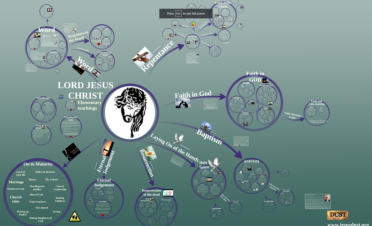
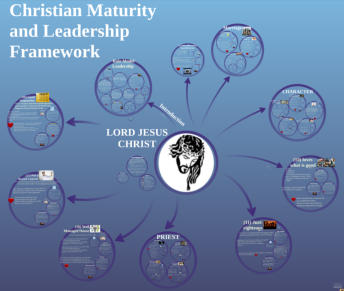
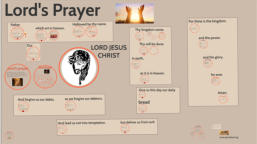
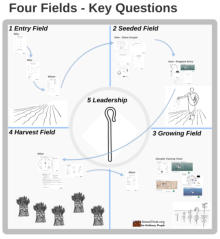





The Amazing Story of JesusDust
Going to church was always a very dull affair for me, even from an early age. Church for me was some religious guy with a microphone which all the older people adored, that ramble on all about God in some religious pies way. I expected that all God’s messengers would be as exciting as God Himself and as engaging as Jesus Christ. I was not drawn to learn from these men. Also, from the 1970s to the 80s, black people were not welcomed at our white South African Sunday services. Even for a sixteen-year-old, this was obvious hypocrisy. All this did not sit well with me, and eventually, I distanced myself from Christianity. I reasoned that one’s culture preconditioned us with a bias towards what I might have incorrectly regarded as the norm, so I became an agnostic. In 1982, at 17, I joined the South African police. I was posted in Johannesburg, Brixton, and lived at John Vorster Square living quarters. By the grace of God, I escaped being imprisoned for all the crimes I committed as a policeman, assault, torturing prisoners, corruption, theft, and other violent crimes. My early violent life later reminded me of the soldiers that flogged and crucified Jesus. This helped me transform my heart towards Jesus Christ with the accusation from Act 2:36 that is echoing in my life; “Act 2:36 “Therefore let all Israel be assured of this: God has made this Jesus, whom you crucified, both Lord and Christ.” In religious terms, I made a full circle from being worldly, then drawn to Judaism, Muslim, Hari Krishna (Hinduism), and back to Christianity when a friend finally explained the scriptures to me. At a time when I have done enough harm to myself and others, and when the purpose of my life troubled me, God reached out to me. I could not obtain a connection with the depth of the Gospel through boring men. Someone had to sit down with me to explain how the Gospel applied to me personally. By God’s grace, the penny dropped for me, and I became a disciple of Jesus Christ in 1992. I was twenty-six, one year married, and with our firstborn, Peter (I am fifty-seven today). This time my view of Christianity was formed on pure scriptures; and no longer our church traditions. Unfortunately, the newfound truth brought about a fair amount of conflict with many traditional Christian teachers. With my eyes opened for the first time, I was surprised how many Christians did not follow pure scripture but a watered- down and culturally adjusted doctrine. People seemed kind on the outside, but there is trouble once you ask a few difficult questions, which is culturally very rude. I became totally devoted to Jesus Christ and his mission. I was on a steep learning curve, growing in knowledge, faith, and wisdom. I learned how to make authentic disciples, counsel people, lead small groups, preach, etc. I was part of leadership in Pretoria that grew the church from a small room of twenty-eight disciples to a church of over a thousand members today. With this journey, I made many regretful mistakes, which now, by the grace of God, I consider experience. In 2011 my family and I immigrated to Perth, Australia, and joined a local church. We learned a lot about grace because, as South Africans, we tend to be very judgemental. However, we learned that Australians struggle to forge deep relationships. It was challenging to make friends outside South African circles, the Bible teachings were shallow, and the congregation did not practice discipleship. My family and many others in the congregation suffered due to a lack of teaching. This is where JesusDust was started. I agreed with the leaders to develop a training series called Elementary Teachings. This allowed me to revisit my personal understanding of what I need to know, understand and practice as a young or mature Christian. I could see scriptures differently with the wisdom God gave me over the many years. In places that I thought would be boring scriptures, I found deep insight and challenging applications. It took me more than four years to write the complete series. In the meanwhile, the leadership at the small church changed, and when I presented the Elementary Teaching series, it was rejected and ignored. The culture of that church became lukewarm, avoiding any conversation that may be uncomfortable or confronting. The truth is that scripture is often confronting, and the Elementary Teaching series was based on pure scripture. Unlike theological studies, which focuses on knowledge, Elementary Teaching was written to mentor, engage, expose and grow our heart. The rejection of the Elementary Teaching mentorship materials motivated me to find people who want to listen to God’s word, are eager to find deeper meaning in Christ, and want to live a meaningful spiritual life. Their rejection of something that I knew would transform lives was the initiation of JesusDust. I set up a rudimentary website posted the training material online, and offered online training and mentorship. Instead of going to the lukewarm, people- pleasing Sunday church services, I went to spread the Gospel. I went to Perth CBD, providing strangers an opportunity to be trained in Elementary Teachings. I met Anton Kroger, a regional manager for SAP; he was trained and became a Christian. Today Anton serves on the board of JesusDust. Soon I had interest from all over the world and my evenings became online training sessions. I trained people from South Africa, America, Rwanda, DRC, Guinea, India, Australia, etc. The material was downloaded and used in some churches for training material. I don’t even know where in the world it is used today. West City Church now adopted an LGBTQ+ sympathetic doctrine and questioned the validity of books other than the four gospels. My family moved to a church that focused on Bible training. PCOC’s appointed full- time staff leaders were very good for our young adults, their Bible teaching was solid, and they practiced discipleship. This was a relief for us from our previous church. By that time, JesusDust was a growing ministry. Unfortunately, because it was not under their leadership’s control, they did not support JesusDust, which was now training people from all over the world. I was criticized, and the ministry leaders scoffed at this ministry: “you cannot build meaningful relationships over the internet and contribute effectively to the kingdom of God.” They also would not be associated or reach out to influence any group that does not belong to their denomination. This created conflict because JesusDust’s mentorship model was available to any Christian group. Yet, after my day job, during after-hours and weekends, I continued to mentor people worldwide in God’s Word and build a deep relationship with the students. I believed in the power of God’s Word and that the soil His Word falls on will yield crops. Unlike the churches I was used to in South Africa, this church did not have a culture of hospitality and close family. To remedy the culture, I proposed to the leader group that we participate in an intimate and challenging leadership training course that would unite us as we grow in God’s Word. Again I hit a wall, and the Australian culture that wishes to avoid pain and vulnerability defaulted to their shallow relationships. I tried to resurrect the proposal every now and then over four years, but it was rejected. Despite the setback, I was motivated to write the maturity/ pastor training series. It became very obvious to me that churches do not have an appetite for transformation, similar to the corporate organization that is constantly trying to find ways to improve its financial margins through this process of growth. Later I was banned from associating with PCOC because I became involved with groups not belonging to them and spoke against pornography in leadership. This caused a split in my family, a harrowing experience. The first reward for developing the Maturity Series was a postor from a church in Goma, Rwanda, reforming his church to become a multiplication ministry. Leaders in God’s church don’t have the maturity or exposure to methods of transformation. That is one of the reasons why revivals are necessary for the church because denominations are very bad at participating in the process of self- evaluation and change. Churches are anchored to their man-made ways of doing things, and their culture and traditions are their security. This is similar to the world’s resistance to changing culture and traditions. God’s Holy Spirit is not leading the church but the rules of religious men. Today I understand the difficulties Jesus had in convincing the Pharisees to believe in Him as the Christ, the Messiah, and to let go of their traditions. Our Churches have become steeped in many habits of doing things and no longer allow the Holy Spirit to lead the conversation. This is mainly orchestrated by a CEO and his board. I must, at this point, mention that I am a corporate Agile coach. I am used to developing training materials to transform corporate team culture so that teams can improve their efficiency and productivity. This I have done at BHP, Watercorporation, PTA, Woodside, Beacon Technology, etc. I also developed Lord’s Prayer through the challenging time of persecution, rejection, and confrontation by hypocritical religious leaders. God used strange situations to inspire me to author these mentorship training series. In 2019, I met George Funk, an evangelist from Gospel Chariots, with a ministry throughout Africa. We addended several workshops, and we learned about the ministry multiplication method used by the persecuted underground house church movement in China, called Four Fields. So, George introduced me to JesusDust’s last study series, Four Fields. Thank you, George! This journey completed our current four exciting and powerful mentorship study series: Four Fields, Elementary Teachings, Lord’s Prayer, and Elder/ Pastor Training. There are even stories of church leaders that became Christians because of our work at JesusDust. People trained by these mentorship materials have started approximately thirty small house churches in Rwanda, Congo, Guinea, and India over two years. About one hundred and fifty people were baptized, new leaders were raised, and we provided financial assistance to four impoverished churches. There are even stories of church leaders that became Christians because of our work at JesusDust. God is blessing JesusDust ministry, glory to God! This story is a testemony to Jesus’ teaching, the parrable of the sower: “Mat 13:23 But the one who received the seed that fell on good soil is the man who hears the word and understands it. He produces a crop, yielding a hundred, sixty or thirty times what was sown. " We invite you to become active in God’s kingdom, be equiped and come a worker in God’s kingdom.